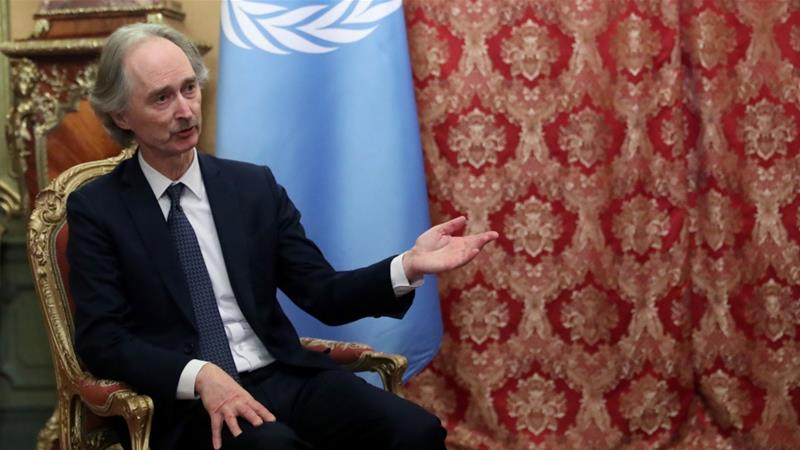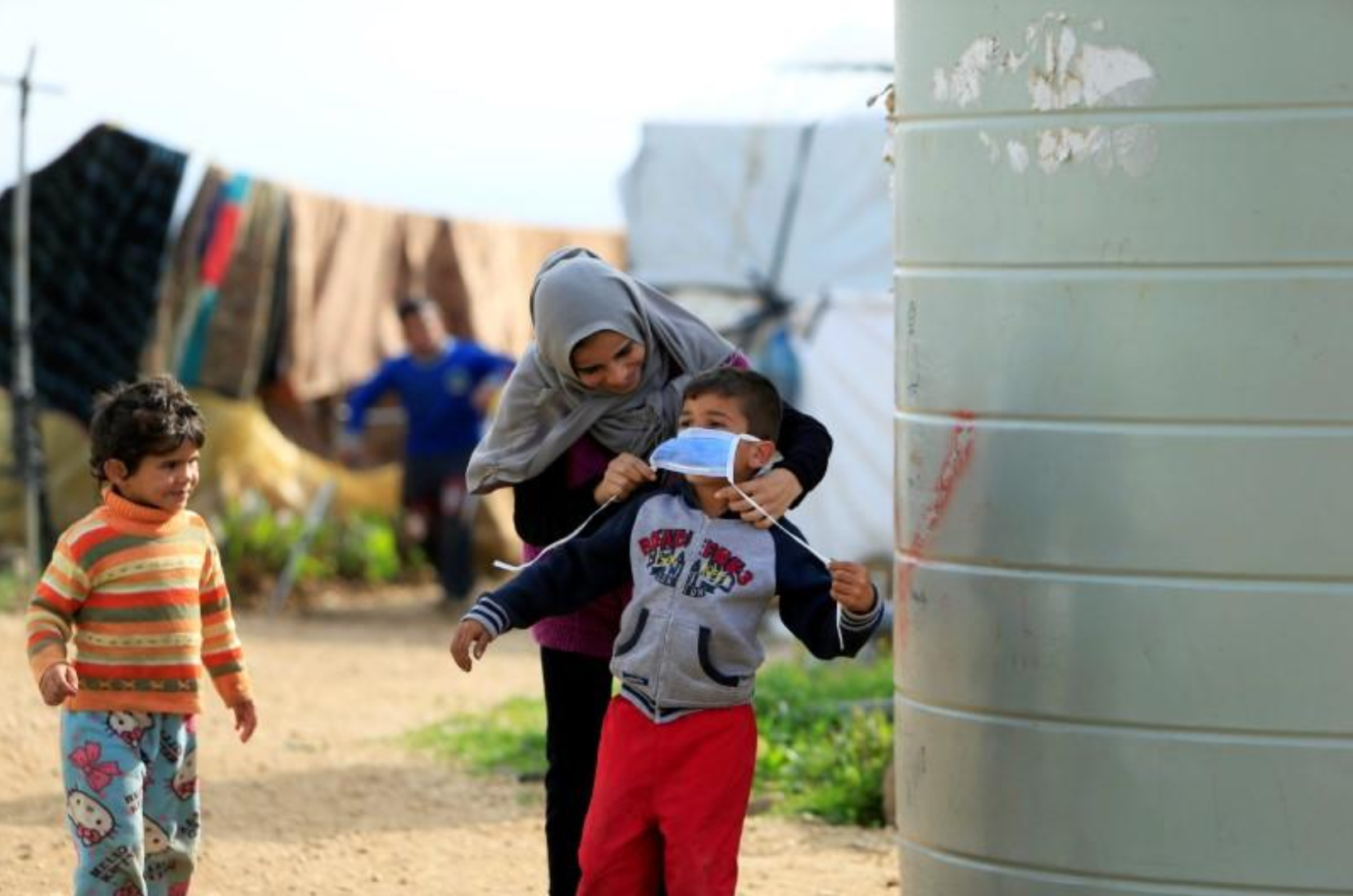
The United Nations' special envoy to Syria Geir Pedersen during a virtual meeting. /Reuters
The United Nations' special envoy to Syria Geir Pedersen during a virtual meeting. /Reuters
UN Undersecretary-General for Humanitarian Affairs Mark Lowcock on Tuesday warned that the impact of the COVID-19 pandemic is now driving food insecurity to record levels in Syria.
The World Food Programme announced last week that an estimated 9.3 million people in Syria are now food insecure, up from an estimated 7.9 million people six months ago.
"As in many other countries, we are seeing the economic impact of the pandemic before we see infections peak: after an initial jump at the end of March, the average price of the national reference food basket for April is 15 percent higher than the March average, and more than double the average recorded in April 2019. It is now higher than at any time since the crisis began," Lowcock told the Security Council.
In the northwest, a region that relies heavily on imported goods, the Syrian pound continues to lose value against the U.S. dollar. The exchange rate in some parts of Idlib has fallen as low as 1,950 to the U.S. dollar, he said.
That is a depreciation of 54 percent since the end of April. The cost of a dollar has more than trebled in the last 12 months. The consequences of this for local communities' purchasing power are severe, he warned.
In early 2020, before the economic impacts of COVID-19 were felt in Syria, an estimated 80 percent of people already lived below the poverty line.
Lowcock asked for the waiver of sanctions that can undermine the capacity of countries to ensure access to food, essential health supplies and medical support to respond to COVID-19.
Days before, Syria's Ambassador to Russia Riyad Haddad slammed U.S. sanctions against his country, saying they hinder supplies of medical products and medicines amid the coronavirus pandemic.
"The United States' sanctions against Syria are actions running counter to international law. It happens at a time when all the nations have mobilized to combat the coronavirus infection. So, such actions are inhumane," he told an online conference on Monday, calling the sanctions are "medical terrorism."

A Syrian refugee woman puts a face mask on a boy as a precaution against the spread of coronavirus, in al-Wazzani area, in southern Lebanon, March 14, 2020. /Reuters
A Syrian refugee woman puts a face mask on a boy as a precaution against the spread of coronavirus, in al-Wazzani area, in southern Lebanon, March 14, 2020. /Reuters
Compounding to Syria's dire situation is the shortage of health workers and impossibility of social distancing amid the coronavirus.
According to the World Health Organization (WHO), less than two-thirds of hospitals were up and running at the end of 2019, and 70 percent of healthcare workers have fled since the war began in 2011.
The International Committee of the Red Cross (ICRC) warned that physical distancing is impossible in displacement camps in Idlib, the last rebel-held province, saying people in the region have already undergone cold weather, food and clean water shortage before the coronavirus, which makes them even more vulnerable.
Since the civil war broke out in Syria in 2011 with Moscow backing the Syrian government and Washington supporting the opposition, millions of people have fled Syria and millions are internally displaced. The ISIL terror group also took advantage of the chaos to gain a foothold in Syria.
The United Nations' Syria mediator Geir Pedersen on Tuesday said that representatives of opposing sides in Syria's war have agreed to reconvene in Geneva for stalled negotiations on the constitution, which may heal the "deep, deep mistrust" between them.
"As soon as the pandemic situation allows, they have agreed to come to Geneva and they have agreed on an agenda for the next meeting," he told journalists.
This comes one day after the special envoy urged the U.S and Russia to make the most of "some calm" in the war-torn country to push for talks aimed at bringing about peace.
( With input from agencies )